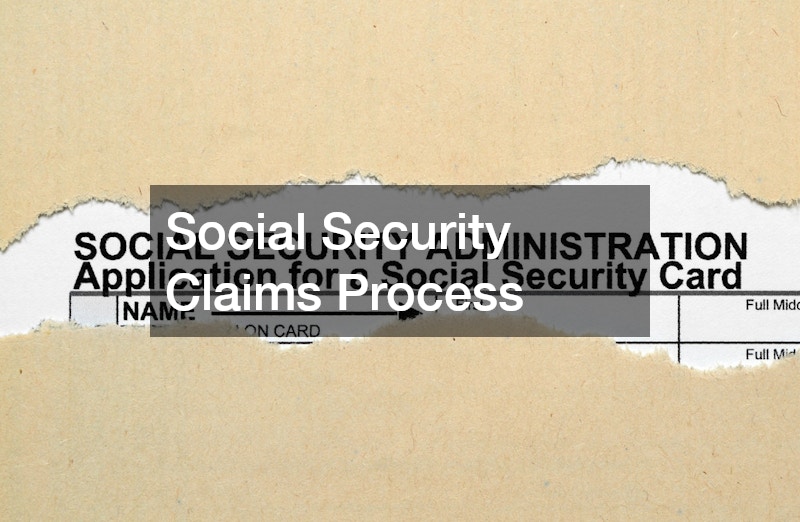When it comes to navigating the complex world of law, understanding the expectations for legal professionals in various fields is crucial. Different types of legal experts—whether defending a client against foreclosure, representing individuals in social security claims, or offering guidance in criminal cases—are each subject to specific sets of responsibilities and duties. These expectations define how effectively these lawyers can serve their clients and the broader legal community. When hiring a lawyer, clients often have a general understanding of what they expect from a legal professional, but each area of law carries its own nuances.
In the context of foreclosure defense, for instance, clients expect their lawyers to understand both the legal processes involved and the strategies to challenge foreclosure proceedings. For social security law, clients anticipate lawyers to navigate the complex claims process and ensure their benefits are obtained. Bankruptcy, criminal defense, probate matters, and family law all present unique challenges, and the expectations for lawyers in each of these fields differ greatly depending on the specific legal matters at hand. The responsibility of a bankruptcy lawyer is to guide clients through debt relief, while criminal lawyers are expected to defend their clients against criminal charges and uphold justice.
Ultimately, the lawyer expectations in these different areas are rooted in professionalism, expertise, and an unwavering commitment to their clients’ needs. Lawyers should approach each case with a clear understanding of both the law and the specific challenges their clients face. This article will delve into each of these legal specialties, shedding light on the expectations that clients hold for their attorneys and how lawyers can best meet those demands in various situations.
Defending Against Foreclosure
A foreclosure defense attorney plays an essential role in helping homeowners protect their properties from being seized by creditors. Foreclosure is often a devastating experience for homeowners who find themselves in financial distress, and the lawyer’s job is to work closely with clients to explore legal strategies that might halt or prevent the foreclosure process. A client facing foreclosure typically expects their attorney to not only have a firm grasp of real estate law but also an understanding of the potential for loan modifications, legal loopholes, and other solutions that might allow them to keep their homes.
Specific lawyer expectations for foreclosure defense attorneys include the ability to assess the client’s financial situation, communicate effectively with mortgage lenders, and advocate for their clients in court. Homeowners may need the attorney to challenge the validity of the foreclosure or negotiate a deal that ensures the mortgage payments can be more manageable. An essential skill for a foreclosure defense lawyer is the ability to foresee potential legal pitfalls and present creative solutions that might not be immediately obvious to clients.
Further, lawyer expectations go beyond simply winning a case or stalling proceedings; clients expect attorneys to keep them informed throughout the process. Whether it’s a matter of reviewing documents, filing appeals, or guiding them through the complexities of foreclosure law, clients look for transparency, attention to detail, and, most importantly, a solution-oriented approach that focuses on their long-term well-being.
Social Security Claims Process

Navigating the social security law system can be a challenging and time-consuming process for individuals seeking benefits. A social security lawyer’s role is to help clients understand the complex requirements and procedures involved in claiming benefits, whether for disability, retirement, or survivor claims. Clients often expect these lawyers to have specialized knowledge of the legal criteria used to approve claims, along with a thorough understanding of how to properly present evidence to the Social Security Administration.
In more specific terms, lawyer expectations for a social security law expert center around the ability to handle extensive documentation and paperwork, often dealing with medical records, employment history, and the client’s functional limitations. Clients rely on their lawyer’s expertise to ensure that all criteria are met in a timely and accurate manner. Additionally, clients expect their lawyer to be proactive in appealing denied claims and guiding them through the legal process of hearings and court proceedings, should that become necessary.
Beyond these technical duties, lawyer expectations also include providing emotional support and guidance. Given the personal nature of the claims process—many claimants are dealing with disabilities or life-changing health conditions—clients expect their attorneys to approach their cases with empathy and patience. The expectation is not just about legal expertise but also about understanding and respecting the difficulties the client is facing during this often stressful time.
Understanding Bankruptcy Cases
Bankruptcy law serves as a critical safety net for individuals and businesses in financial distress. A bankruptcy lawyer is responsible for guiding their clients through the legal procedures involved in declaring bankruptcy, ensuring that they understand the implications and the best options available. Clients who are contemplating bankruptcy often expect their lawyer to help them navigate through complex legal filings, identify which type of bankruptcy (Chapter 7, Chapter 13, etc.) is most beneficial, and determine how best to manage their debts in the process.
Specifically, lawyer expectations for bankruptcy law attorneys include expertise in analyzing a client’s financial situation and advising on whether bankruptcy is the most suitable option. Clients expect lawyers to thoroughly review debts, assets, and potential exemptions, making informed decisions based on these details. They also rely on their lawyer to help them avoid common pitfalls, such as asset liquidation, which can have lasting consequences if not carefully managed.
Moreover, lawyer expectations extend to providing clients with a clear roadmap post-bankruptcy. After filing, clients want reassurance and continued support as they rebuild their credit and financial stability. The bankruptcy process, while often a last resort, can offer a fresh start, and clients look to their lawyers not only to help them through the immediate legalities but also to set them on a path to long-term recovery.
Criminal Defense Expectations

Criminal defense lawyers are tasked with defending individuals charged with crimes, ranging from minor offenses to serious felonies. The expectations for criminal lawyers are high, as clients expect them to provide aggressive, strategic defenses to ensure their rights are protected. A criminal defense attorney’s main duty is to assess evidence, question the legality of arrests, and advocate for the best possible outcome for their client, whether that’s a dismissal, reduced charges, or a favorable verdict in court.
More specifically, lawyer expectations for criminal lawyers include their ability to understand the intricacies of criminal law, including recent legal changes, sentencing guidelines, and trial strategies. Clients expect their criminal defense lawyer to be an expert in negotiating plea deals when necessary and to prepare for trial in cases where a plea agreement isn’t an option. Clients also trust their lawyer to represent them impartially, without judgment, and to maintain confidentiality throughout the legal proceedings.
Navigating Probate Matters
Probate attorneys specialize in helping clients manage the legal processes surrounding the distribution of an estate after someone’s death. This can include validating a will, overseeing the distribution of assets, and ensuring that any taxes or debts are properly handled. Given the emotional and financial challenges involved in settling an estate, clients expect probate attorneys to handle these matters with care and diligence, providing clarity during what can be an emotionally charged time.
Specific lawyer expectations for probate attorneys include an in-depth understanding of state laws regarding probate, estate planning, and the rights of beneficiaries. Clients expect their lawyer to streamline the process as much as possible, minimizing the risk of disputes or delays. When contentious issues arise—such as challenges to the will or disagreements between beneficiaries—the lawyer is expected to mediate or represent their client’s best interests in court.
Debt Relief Through Chapter 7

Chapter 7 lawyers specialize in helping clients file for bankruptcy under Chapter 7, which provides a fresh start by discharging unsecured debts. Clients often seek out a Chapter 7 lawyer when they find themselves overwhelmed by debts they cannot repay. The primary expectation is that the lawyer will help them navigate the process of filing for bankruptcy, ensuring all necessary documents are submitted accurately and on time.
Specifically, lawyer expectations for a Chapter 7 lawyer include expertise in determining eligibility for Chapter 7 bankruptcy, advising on which assets may be exempt from liquidation, and assisting in the liquidation of non-exempt assets to pay creditors. Clients expect their lawyers to explain the bankruptcy process thoroughly, addressing any concerns about credit scores, the future impact of bankruptcy, and the effects on their financial situation.
Finding the Right Divorce Lawyer
When it comes to divorce, clients expect the best divorce lawyers to provide not only legal expertise but emotional support during one of the most challenging times in their lives. Divorce lawyers are expected to assist with property division, child custody, spousal support, and other essential matters. Clients rely on divorce lawyers to ensure their interests are well-represented throughout the negotiation or litigation process, and to advocate for fair settlements or court rulings.
Specifically, lawyer expectations for divorce attorneys include a deep understanding of family law, particularly the nuances of divorce proceedings in the client’s state. Clients expect their lawyer to offer strategies that balance legal interests with their personal priorities, whether that’s maintaining custody of children or ensuring financial stability post-divorce. They also expect lawyers to be proactive, offering advice on how to handle delicate issues like mediation or collaborative divorce.
Personal Injury Legal Help

Personal injury lawyers are tasked with helping individuals who have been injured due to accidents or negligence. The primary expectation clients have is that personal injury lawyers will help them secure compensation for medical bills, lost wages, and other related expenses. Clients look for lawyers who will fight for their right to fair compensation while handling their case with professionalism and care.
Specifically, lawyer expectations for personal injury attorneys include expertise in tort law and an understanding of how to build a compelling case based on evidence, medical records, and eyewitness accounts. Clients expect their lawyer to effectively negotiate with insurance companies and, when necessary, to take the case to trial to ensure they receive the compensation they deserve.
Family Law Representation
Family law attorneys are entrusted with some of the most personal and sensitive legal issues, such as child custody, adoption, and domestic abuse. Lawyer expectations for family law attorneys are typically high, as clients expect them to provide compassionate yet firm representation in often emotionally charged situations. These lawyers are expected to guide clients through the legal intricacies of family law while ensuring the best interests of children and families are upheld.
More specifically, lawyer expectations for family law attorneys include deep knowledge of family law statutes, as well as experience in handling delicate negotiations regarding child custody and support. Clients expect lawyers to be not only skilled legal strategists but also empathetic listeners who understand the family dynamics involved in each case. Whether advocating for the client’s parental rights or handling sensitive matters like domestic violence claims, family law attorneys are expected to offer both legal expertise and emotional support.
Understanding Bail Bonds
Bail bond professionals help individuals secure release from jail after an arrest, often under the condition that they appear for future court dates. While bail bondsmen and lawyers may not always work together directly, clients have specific expectations for lawyers who deal with criminal cases and bail. Clients expect their lawyers to work in tandem with bail bondsmen to secure their release, if necessary, while also addressing any legal issues related to the charges they face.
In terms of specific lawyer expectations, clients expect criminal defense attorneys to coordinate with bail bondsmen to ensure that the bail process is smooth and efficient. They rely on their lawyer to explain the bail process, including the terms of release, and to guide them through any legalities associated with obtaining a bail bond. Whether the client is facing minor or serious charges, the expectation is that the lawyer will work to minimize their exposure to legal consequences while facilitating their release in the most efficient way possible.
The expectations for lawyers vary greatly across different legal fields, yet certain fundamental qualities remain constant across all areas of law. Whether defending against foreclosure, assisting with social security claims, or representing clients in divorce or criminal cases, clients seek attorneys who are knowledgeable, communicative, and dedicated to their clients’ best interests. For all of these legal professionals, lawyer expectations include a deep understanding of the law, the ability to navigate complex legal procedures, and a client-centered approach that ensures their clients are informed and supported throughout the process.
